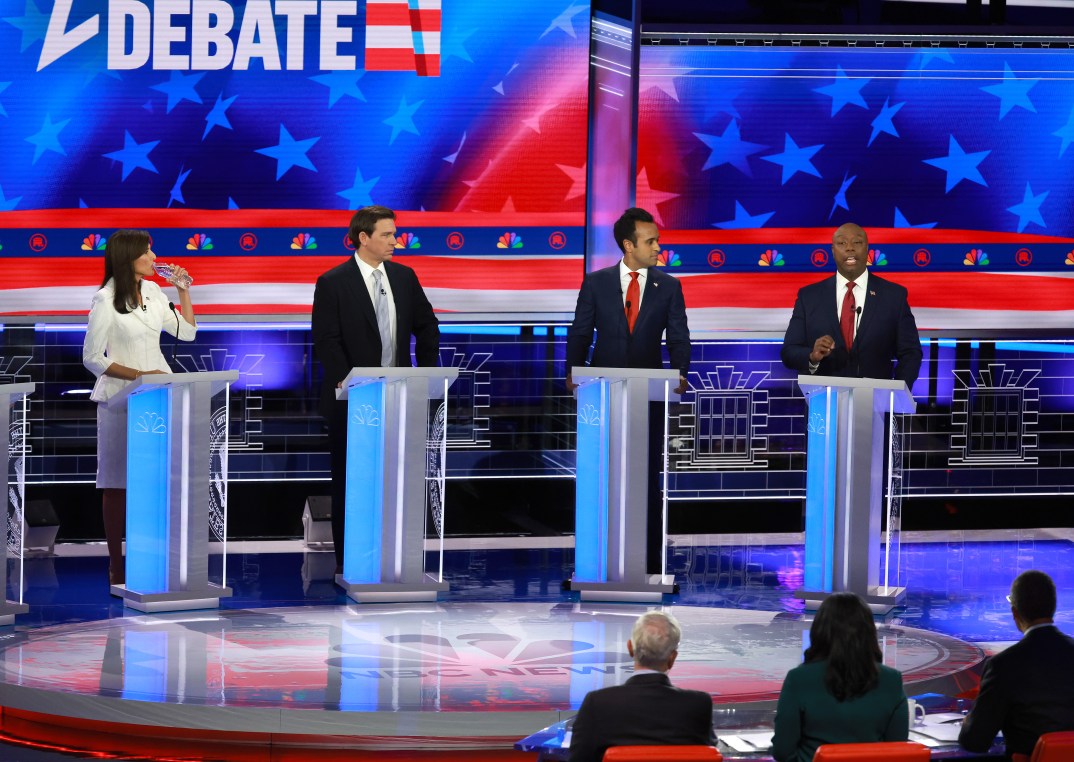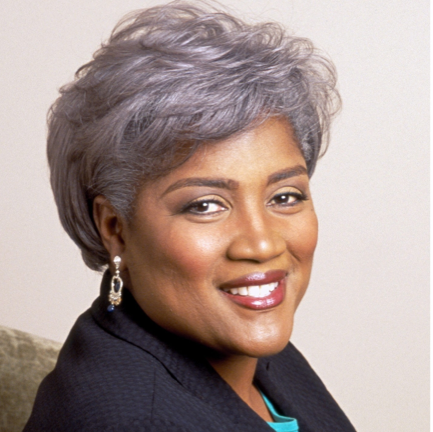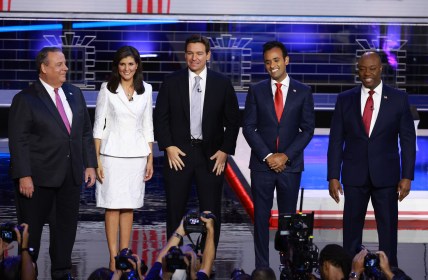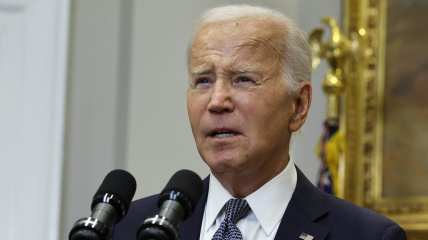Republican presidential candidates propose unrealistic policies in third debate
OPINION: At a third GOP debate without Trump, who remains the frontrunner, the candidates failed to address key issues important to marginalized communities.

Editor’s note: The following article is an op-ed, and the views expressed are the author’s own. Read more opinions on theGrio.
Desperate to narrow the gigantic lead former President Donald Trump maintains over them in polls, the five Republicans participating in Wednesday night’s presidential debate proposed a series of unrealistic policies and ignored some of the major issues facing America.
The candidates also largely ignored Trump out of apparent fear of angering his base, even though they need to erode his support to have any chance of defeating him.
Florida Gov. Ron DeSantis, former U.N. Ambassador and South Carolina Gov. Nikki Haley, entrepreneur Vivek Ramaswamy, former New Jersey Gov. Chris Christie, and Sen. Tim Scott of South Carolina (the only Black candidate still in the race) participated in the debate held in Miami.
The candidates failed to address key issues, most notably protecting our democracy from Trump’s threats to weaponize federal agencies and the courts to create an authoritarian regime that could rob us of some of our most cherished freedoms.
Candidates also failed to address important issues including fighting systemic racism and discrimination against the LGBT community; reducing poverty; reducing gun violence; improving our schools; protecting our voting rights; ending brutality and unjustified killings by police; lowering prescription drug costs; requiring the rich to pay their fair share of taxes; and combatting destructive climate change.
All the candidates expressed anti-abortion views, although such views helped defeat Republicans in several state elections Tuesday.
Christie said it should be up to states to regulate abortions. DeSantis, who signed a bill into law in Florida banning abortion after six weeks, said anti-abortion forces need to do a better job winning support for state restrictions when they are put on the ballot. Scott said he would impose a 15-week limit on abortions nationwide, but Haley said no such ban could get enough votes in the Senate to reach the president’s desk.
Candidates called for increasing oil, coal and natural gas production in the U.S. without addressing the fact that this would accelerate climate change. They said more fossil fuel production would lower energy prices and make America and the world less dependent on other nations for energy.
Haley even said she would end federal taxes on gasoline and diesel fuel, which would deprive the federal government of tens of billions of dollars a year in funding for highways, worsen the federal deficit and cripple efforts to switch to electric vehicles.
On the issue of unauthorized immigration and drug smuggling, all the candidates said they would increase security on our border with Mexico and reduce fentanyl smuggling.
DeSantis said he would out-Trump Trump by finishing the wall along our southern border begun by the former president and would make Mexico pay for it by taxing money Mexican workers in America send back to their families. He said he would send U.S. troops to the Mexican border and tell them to shoot fentanyl smugglers “stone cold dead,” without explaining how such extrajudicial killings would be legal.
Ramaswamy upped the ante by saying he would build a wall along our much longer northern border with Canada, not addressing how he would pay for it or how this would conflict with his goal of reducing the federal deficit. He repeated his fantastical call for getting rid of 75% of federal employees, without explaining how the federal government would continue providing vital services with far fewer workers.
All the candidates called for supporting Israel in its war against Hamas in the Gaza Strip. However, Ramaswamy, who embraces an isolationist foreign policy, declined to support the U.S. aid that Israel needs to defend itself and destroy Hamas. No candidate raised the issue of funding desperately needed humanitarian assistance for the Palestinians.
Christie and Haley said they support more U.S. aid to Ukraine. DeSantis said America is sending too much aid to Ukraine and said “We need to bring this war to an end.”
Sounding like a puppet of Russian President Vladimir Putin, Ramaswamy sharply criticized the Ukrainian government and said he would deny it aid. He even said Ukraine “has celebrated a Nazi in its ranks — the comedian in cargo pants, a man called Zelensky,” referring to Ukrainian President Volodymyr Zelensky, who is Jewish and had relatives murdered by the Nazis in the Holocaust.
Ramaswamy was the most aggressive and annoying candidate on the debate stage, interrupting other candidates, talking over them and targeting Haley several times. At one point, he even criticized Haley’s daughter for using the social media platform TikTok, which is owned by a Chinese company and which Ramaswamy has drawn criticism for using himself. “Leave my daughter out of your voice,” a visibly angry Haley shot back. “You’re just scum.”
Wednesday featured the fewest candidates yet on the presidential debate stage this year. Former Arkansas Gov. Asa Hutchinson and North Dakota Gov. Doug Burgum failed to meet the polling and fundraising qualifications to participate in the debate. Former Vice President Mike Pence ended his struggling campaign on Oct. 28.
The FiveThrityEight.com average of national presidential polls gives Trump the support of about 56% of likely Republican primary and caucus voters, followed by DeSantis at about 14% and Haley at 9%. The other candidates in Wednesday’s debate trail in the low single digits. Burgum and Hutchinson each have under 1%.
As he did in the first two Republican presidential debates, Trump skipped the Wednesday event. Ducking the debate enables him to avoid being confronted with the 91 criminal charges he is facing, along with his civil trials and the failures of his presidency.
Right now, Trump remains the overwhelming favorite to become the Republican presidential nominee, despite the possibility that he could be a convicted felon and sentenced to prison by the time the Republican National Convention is held in July or by the time of the Nov. 5 general election.
Surprises and upsets happen in every presidential cycle. I’ve seen plenty of frontrunners in past campaigns defeated by candidates who pundits predicted had no chance of winning. So it’s too early to say Trump is the inevitable GOP presidential nominee.
I hope the Republican field narrows soon so the anti-Trump vote can consolidate behind one candidate because another Trump term in the Oval Office would be a serious threat to the continuation of American democracy, the rule of law, our national security and vital government programs that benefit the most vulnerable Americans — including a disproportionate number of Black families.
The Republican nominating contests kick off Jan. 15 with the Iowa caucuses. Stay tuned for what promises to be a heated race to see which Republican runs against President Biden.

Donna Brazile is a veteran political strategist, Senior Advisor at Purple Strategies, New York Times bestselling author, Chair of the J. William Fulbright Foreign Scholarship Board, and sought-after Emmy- and Peabody-award-winning media contributor to such outlets as ABC News, USA Today and TheGrio. She previously served as interim Chair of the Democratic National Committee and of the DNC’s Voting Rights Institute. Donna was the first Black American to serve as the manager of a major-party presidential campaign, running the campaign of Vice President Al Gore in 2000. She serves as an adjunct professor in the Women and Gender Studies Department at Georgetown University and served as the King Endowed Chair in Public Policy at Howard University and as a fellow at the Institute of Politics at Harvard Kennedy School. She has lectured at nearly 250 colleges and universities on diversity, equity and inclusion; women in leadership; and restoring civility in American politics.
TheGrio is FREE on your TV via Apple TV, Amazon Fire, Roku and Android TV. Also, please download theGrio mobile apps today!


